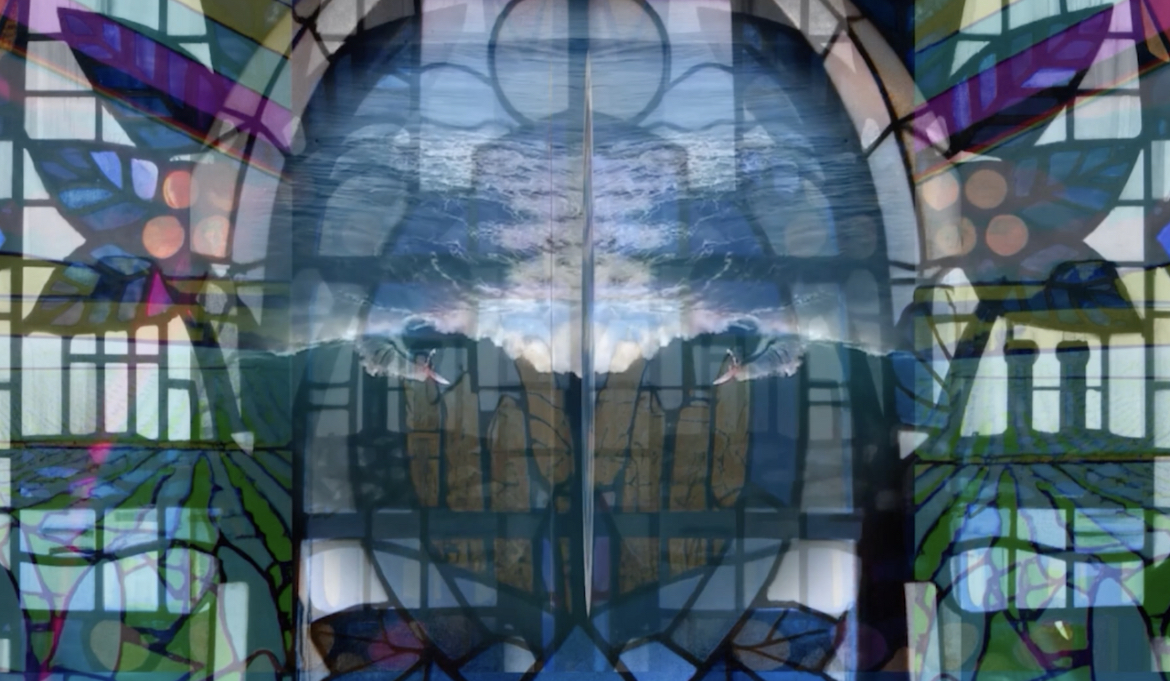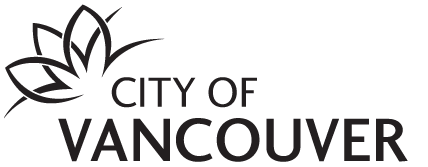Screening
Unmoored, Adrift, Ashore: Companion Screening
14 May–
29 May 2022
Convened by: Emily Carr University of Art + Design, Haus der Kulturen der Welt, Or Gallery
Participants: Georgina Hill, Ayesha Hameed, Jane Jin Kaisen, LAIWAN, Marianne Nicolson
Featuring Georgina Hill (UK), Ayesha Hameed (UK), Jane Jin Kaisen (DK), LAIWAN (CA), Marianne Nicolson (CA).
This exhibition is supplementary to the symposium, Unmoored, Adrift, Ashore, organized with Emily Carr University of Art + Design and Haus der Kulturen der Welt, supported by a SSHRC (Social Sciences and Humanities Research Council) Connect Grant. More information can be found here.
[Image courtesy of Jane Jin Kaisen: Still from “The Offering.”]
The warming climate brings an increasing sea-level rise that will redraw the interface between land and sea, the city and its shore. What is now known as the Greater Vancouver area, located on the Salish Sea, is one of the multitude of global coastal cities threatened by large areas of submersion when False Creek and the Fraser River break their banks. The City of Vancouver began a study of the impacts of this imminent event on the city’s coastline after the Provincial government advised municipalities to plan for a 2 metre sea level rise by 2200. Even by 2100, the City’s projections will see parts of Emily Carr University of Art and Design, the site of this symposium, be reclaimed as a floodplain and susceptible to partial submergence. Unmoored, Adrift, Ashore aims to prepare us for the kinds of visioning we will require to increasingly adapt to a new and intensified relationship with water, and to think about how we can use the transformation of the ocean’s reach to reconsider our relationships to property, futures, economies, and each other.
This reclamation through water opens many possibilities for unsettling and shifting much of the legacy of Vancouver and the Northwest Coast region as a settler-colonial space, founded on unceded Indigenous territories. It allows for the possibility of expanding outside of the present time and local context, to think of the future sea-level rise beyond catastrophic terms and to imagine the potential of the rising water as revealing and restoring the presences and relations lost, or almost lost, to colonial forms of dispossession.
The symposium will include a series of examinations emerging from Indigenous and post-colonial thought that offer conceptions of water as a central component for decolonizing and disrupting conventional understandings of identity, borders, ownership and other forms of relations that stretch beyond territorial and commodity logics. These investigations include artistic and poetic imaginaries in the focus on Pacific regions, building on the renewed emphasis on transregional Oceanic studies to address the urgencies of our shifting ecological context.
Participant Bios
Dr. Marianne Nicolson
Dr. Marianne Nicolson (‘tayagila’ogwa), is an artist-activist of Scottish and Dzawada’enuxw First Nations descent. Dzawada’enuxw People are a member tribe of the Kwakwaka’wakw Nations of the Pacific Northwest Coast. She is trained in both traditional Kwakwaka’wakw forms and culture and contemporary gallery and museum-based practice. She holds a Bachelor of Fine Arts from the Emily Carr University of Art and Design (1996), a Master of Fine Arts (2000) from the University of Victoria, as well as a Master of Arts (2005) in Linguistics and Anthropology and a PhD (2013) in Linguistics and Anthropology with a focus on space as expressed in the Kwak’wala language.
Nicolson works as a Kwakwaka’wakw cultural researcher and historian, as well as an advocate for Indigenous land rights. Her practice is multi-disciplinary encompassing photography, painting, carving, video, installation, monumental public art, writing and speaking. All her work is political in nature and seeks to uphold Kwakwaka’wakw traditional philosophy and worldview through contemporary mediums and technology. Exhibitions include the 17th Biennale of Sydney, Australia; The Vancouver Art Gallery, The National Museum of the American Indian in New York, Nuit Blanche in Toronto, Ontario, Museum Arnhem, Netherlands and many others. Major monumental public artworks are situated in Vancouver International Airport, the Canadian Embassy in Amman, Jordan and the Canadian Embassy in Paris, France.
Her practice engages with issues of Aboriginal histories and politics arising from a passionate involvement in cultural revitalization and sustainability.
LAIWAN
LAIWAN is an interdisciplinary artist, writer and educator with a wide-ranging practice based in poetics and philosophy. Born in Zimbabwe of Chinese parents, her family immigrated to Canada in 1977 to leave the war in Rhodesia. Her art training began at the Emily Carr College of Art & Design (1983), and she returned to academia to receive an MFA from Simon Fraser University School for Contemporary Arts (1999). Recipient of numerous awards, including the 2021 Emily Award from Emily Carr University, recent Canada Council and BC Arts Council Awards, and the 2008 Vancouver Queer Media Artist Award, Laiwan has served on numerous arts juries, exhibits regularly, curates projects in Canada, the US, and Zimbabwe, is published in anthologies and journals, and is a cultural activist.
Laiwan has been investigating colonialism, with aim toward a decoloniality, since the late 1980s. She also has been exploring embodiment since 2000, through performativity, audio, music, improvisation, and varieties of media, along with bodily and emotional ways of knowing, so as to unravel and engage presence.
Dr. Ayesha Hameed
Dr. Ayesha Hameed explores the legacies of indentureship and slavery through the figures of the Atlantic and Indian Oceans. Her Afrofuturist approach combines performance, sound essays, videos, and lectures. Hameed examines the mnemonic power of these media – their capacity to transform the body into a body that remembers. The motifs of water, borders, and displacement, recurrent in her work, offer a reflection on migration stories and materialities, and, more broadly, on the relations between human beings and what they imagine as nature. Recent exhibitions include Liverpool Biennale (2021), Gothenburg Biennale (2019, 21), Lubumbashi Biennale (2019) and Dakar Biennale (2018). She is co-editor of Futures and Fictions (Repeater 2017) and co-author of Visual Cultures as Time Travel (Sternberg/MIT 2021). She is currently a Senior Lecturer in Visual Cultures at Goldsmiths University of London and a Kone Foundation Research Fellow in the Arts at the Helsinki Collegium for Advanced Studies.
Georgina Hill
Georgina Hill is an artist born in the UK, based in London. Her work is concerned with material encounters of social structures. Part document, part stagecraft, she works in forms of installation, video, and text. With postgraduate study in English Literature at University College London, she studied in the class of Hito Steyerl at the University of Fine Arts Berlin, subsequently graduating from Goldsmiths University, London with an MFA. She has collaborated with INLAND Campo Adentro on a number of occasions, working on topics of coastal economies and alternative curriculum modelling. She will present solo exhibitions in 2022 at fluent in Santander and Galerie Charraudeau in Paris, and will publish an artist’s book with Éditions Lutanie. Her work has been shown internationally at the Arnis Residency (Germany), Seoul Biennale for Architecture and Urbanism (South Korea), Bulegoa z/b (Spain), Nordic Winter Symposium, Nida Art Colony (Lithuania), Art Night (UK), Museum of Photography (Germany), and the Swiss Church (London), among others.
Jane Jin Kaisen
Jane Jin Kaisen (born 1980 in Jeju Island, lives in Copenhagen) is a visual artist, filmmaker, and Professor at the School of Media Arts, The Royal Danish Academy of Fine Arts. Kaisen’s artistic practice is informed by extensive interdisciplinary research and engagement with diverse communities. She is known for her visually striking, multilayered, performative, poetic, and multi-voiced feminist works through which past and present are brought into relation. Engaging topics such as memory, migration, borders, and translation, she activates the field where lived experience and embodied knowledge intersect with larger political histories. Her works negotiate and mediate the means of representation, resistance, and reconciliation, thus forming alternative genealogies and sites of collective emergence.
Kaisen represented Korea at the 58th Venice Biennale with the film installation Community of Parting (2019) alongside artists Hwayeon Nam and siren eun young jeong in the exhibition History Has Failed Us, but No Matter curated by Hyunjin Kim. She was awarded “Exhibition of the Year 2020” by AICA – International Association of Art Critics, Denmark for the exhibition Community of Parting at Kunsthal Charlottenborg and awarded the Montana ENTERPRIZE at Kunsthallen Brandts in Denmark in 2011. Kaisen has participated in the biennials of Liverpool, Gwangju, Anren, Jeju, among others. Recent solo exhibitions include Parallax Conjunctures at Museum of Contemporary Art Detroit (2021), Community of Parting at Art Sonje Center (2021) and Kunsthal Charlottenborg (2020), and Of Specters or Returns, Gallery damdam (2020).




